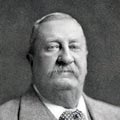Through the Nasca and Cañete Valleys, Part 2
It was about 8 a.m. when we struck camp. I was well aware that the greatest danger we had to contend with was the desert fog, a nasty white mist, dense as a London fog, that creeps down and takes travellers unawares if they don’t keep their eyes skinned. So I determined to keep a sharp look-out for those little signs that experience had taught me always precede these visitations.
About 10 o’clock I noted that Golondrina seemed uneasy. Next the back of my hand felt as if an icy finger had touched it. Almost immediately the atmosphere began to thicken, and by 10.30 the path was hardly visible. I quickly decided that we must halt, for if we wandered from the path in the semi-darkness, our doom was probably sealed. So I dismounted, and called upon Caro to follow suit, an order he promptly obeyed. Then we squatted down on the path, holding our horses by their bridle reins lest they should get away. Thus we sat until close upon 1 o’clock, when the fog cleared. During our compulsory halt we gave Golondrina and Tony a bottle of beer each, and the oats and alfalfa mixture.
Directly it was safe to do so, we resumed our journey, I on Tony and Francisco on Golondrina, whose turn it was now to carry the tack. All through our journey I made a practice of changing horses every hour. The atmosphere was now sensibly warmer, although not uncomfortably so, and there was a beautiful sky overhead. But all round us, so far as the eye could see on every side, nothing but sand, sand, sand.
However we did not allow our minds to dwell upon the monotonous outlook, but kept steadily plugging along. At last, about 5 p.m., our eyes were gladdened by the sight of a fringe of waving green grass. We had crossed the first stretch of desert!
Within a short time we entered the confines of a valley, even more beautiful than the one we had left. Down the centre of it ran a stream of water, probably a branch of the Appurimac. Along its banks Guinea grass grew in wild profusion. All around were to be seen delicious fruits and flowers. It was indeed a Garden of Delight.
We soon hit up against an Indian homesteader, and came to terms with him. For 2s., or 1 sol a day, he agreed to let me have a hut for myself and a shed for the horses. Truly the further one gets from civilization, the cheaper does everything become. Like the Indian in the other valley, this one catered for our every need, and charged even less for fruit and vegetables. He offered me, for instance, chirimoyas and paltas at 1 cent each. I really could not accept them at that price, but had some difficulty in inducing him to take 2 cents apiece. Not far from the riverside were fields of alfalfa, planted by settlers who lived in this beautiful region, free from care and worry, and having pretty well everything that human nature craves for close to their hand. I decided to stay here three days, and give the horses a good rest, while I took a look round.
The owner of the hacienda, or big farm, where we put up, paid us a visit next morning about nine o’c1ock, and gave me a cordial invitation to his own private residence, three miles away. He also offered me the use of a fine pacer while my horses took things easy. I thanked him heartily for his kind courtesy, but didn’t go to his house, as I only wanted to potter about. I accepted the loan of the horse, however. He told me there were many objects of interest scattered about all over the valley, including ancient ruins overgrown with shrubs and weeds and brushwood, that had hardly been touched since the time of the Incas.
There was plenty of game here, partridges, doves, bush-chicken, martinette, and so forth. Bush-chicken are capital eating. They are very plump, and closely resemble the ordinary barn-door fowl in appearance. In colour they are a dirty blackish-brown. Fowls were brought to Peru by Pizarro. It is stated in Prescott’s Conquest of Peru that the Indians were greatly surprised when the cocks began to crow. They had never heard such a thing before. Bush-chicken have all descended from these birds. Equally strange to them were the horses Pizarro introduced.
